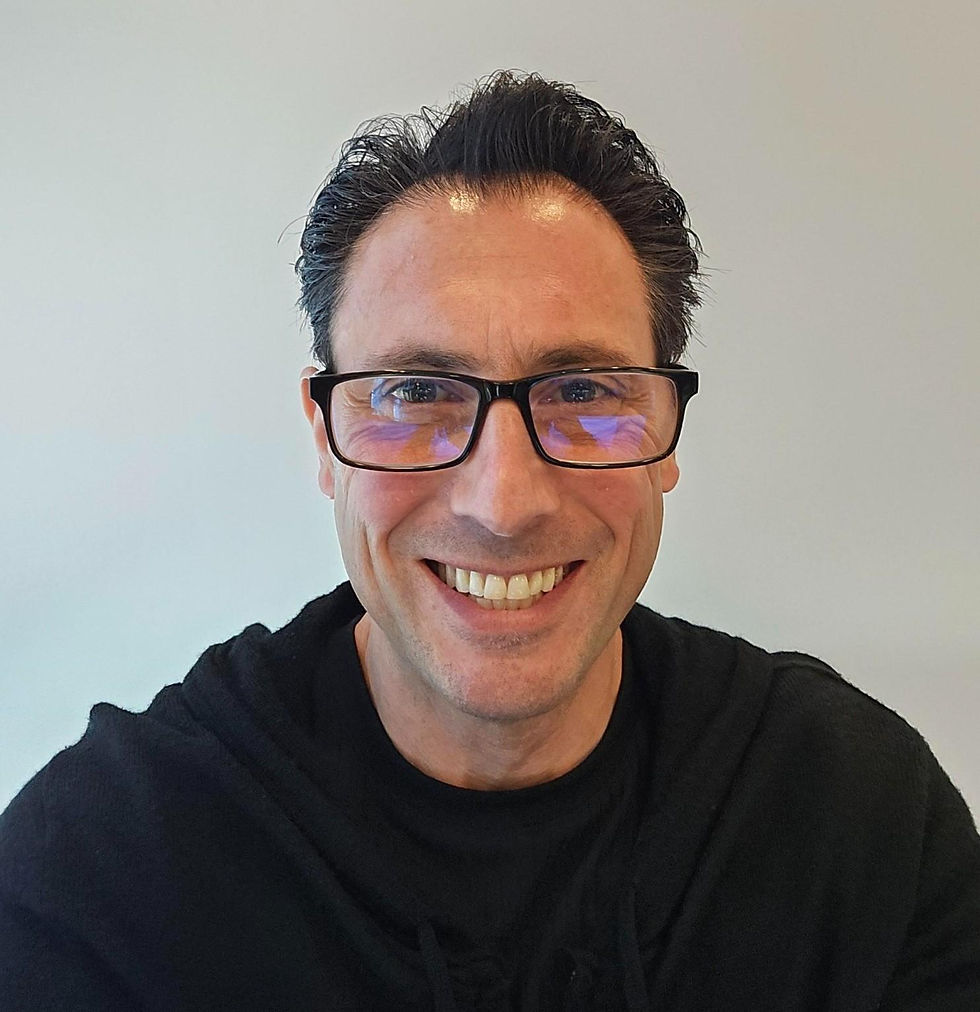Mitchell Geisler – From Ground-Level Hustle to Healthcare Growth
- Nov 6, 2025
- 3 min read
When people think of CEOs, they often picture corner offices, sharp suits, and a clear-cut path to the top. Mitchell Geisler’s journey couldn’t be further from that. His story begins behind a bar in downtown Toronto–not in a boardroom.
“I was running a bar in my twenties,” Geisler says. “You learn a lot that way–how to deal with people, stay calm under pressure, and make quick decisions when things go sideways.”
Those lessons stuck. Over the years, Mitchell moved from hospitality to mining and, eventually, to healthcare. Each move wasn’t part of a rigid plan, but a natural next step based on what he was learning–and what he could build.
Today, he’s the CEO of LevelJump Healthcare, where he’s grown the company from $850,000 to over $17 million in gross revenues. His leadership style is rooted in clarity, calm thinking, and creating real results without the noise.

What is Mitchell Geisler known for? Scaling businesses across industries
Mitchell’s career spans three very different industries: hospitality, mining, and healthcare. But the common thread has been growth. When he took over LevelJump Healthcare in 2010, he didn’t just maintain it–he scaled it.
“We didn’t reinvent the wheel,” he explains. “We focused on execution. Building the right team. Making sure everyone had what they needed to deliver.”
Prior to that, he served as COO of Pacific Gold Corp, where he managed complex operations and tight investor expectations. But even there, his approach was grounded and team-focused.
“It’s not about being the smartest person in the room,” he says. “It’s about asking the right questions and being willing to learn.”
Lessons in leadership from the ground up: Why listening matters more than talking
Mitchell’s leadership philosophy isn’t about control–it’s about clarity. He believes that many problems can be solved by simply slowing down and listening.
“I don’t pretend to have all the answers,” he says. “Ask others. Learn. Listen. Then act.”
That mindset has helped him build trust across teams and industries. Whether leading staff in a healthcare setting or guiding a resource company, Mitchell stays focused on people.
“People want to feel heard. And when they do, they perform better,” he adds.
Staying grounded in high-pressure roles: How routine supports decision-making
Despite running a multi-million-pound company, Mitchell still makes time to run daily. He’s completed two half-marathons and sticks to his fitness routine to stay mentally sharp.
“It helps clear my head,” he explains. “Some of my best ideas have come when I’m out on a run, not in a meeting.”
He’s also a big believer in stepping away from work when needed.
“If you’re stuck on something, stop what you’re doing. Go for a walk. Take a few deep breaths. Talk it out with someone.”
This isn’t just personal advice–it’s a tool he uses to keep himself and his company moving forward.
Big ideas don’t always come loudly: Turning small steps into long-term growth
Mitchell isn’t interested in chasing trends. He’s focused on building things that last–whether that’s a team, a process, or a business model.
“Success is in the results. Are we improving? Are we growing? Are people engaged?”
That mindset helped him steer LevelJump through challenging times in healthcare, an industry where stress and burnout are high. Instead of reacting emotionally, he leads with strategy.
“In healthcare, you need compassion and understanding,” he says. “Doctors are under pressure. Staff are stretched. You have to build a culture where people support each other.”
What we can learn from Mitchell Geisler’s journey
Mitchell’s path hasn’t been traditional. But it’s exactly that background–shaped by real-life experience and quiet consistency–that makes him effective.
From managing a bar to scaling a healthcare company, he’s shown that success often comes from paying attention to the little things: asking better questions, trusting your team, and taking time to think clearly.
His approach proves that big ideas don’t always look big at first. Sometimes, they show up when you step away from your desk–or ask someone else what they think.
“It’s not about being perfect,” he says. “It’s about being present.









